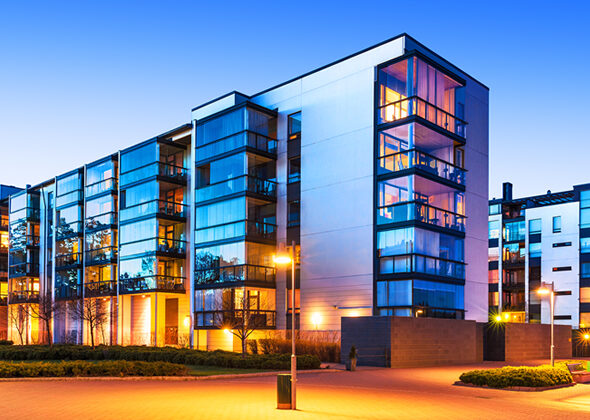Commercial-Business Loans
MG & G Capital Partners INC. is a full-service commercial brokerage firm that services the needs of entrepreneurs and corporations. We listen closely to your business goals and objectives while discovering new opportunities and reducing limitations.
Whether you need a working capital line of credit to help with seasonal growth, term financing for capital expenditures, or finance long-term business growth, We offer all the financing solutions and expertise to help your business be successful. Moreover, when you’re ready to buy that new building or refinance your existing property, MG & G Capital Partners INC. offers a variety of financing solutions at your fingertips.


Breaking Barriers
We are in the business of building bridges, finding solutions where nobody else can, and funding projects anywhere needed in or out of Texas. Therefore, MG&G Capital Partners Inc. commercial financing options are designed for small and large balance commercial real estate’s properties such as office, retail, light industrial/warehouse, self-storage, automotive, mobile home/RV parks, restaurants (including quick service), mixed-use, and parking lots/garages, Multifamily, Hotels, Gas Stations and other projects.
Types of commercial and business loans
SBA LOANS
Small Business Administration (SBA) loans can be a valuable tool for small businesses in need of financing. The SBA helps small businesses obtain needed credit by giving the government’s guaranty to loans made by commercial lenders. The lender makes the loan and SBA will repay up to 85% of any loss in case of default. Since this is a bank loan, applications are submitted to the bank, and loan payments are paid to the bank. For the SBA 7(a), this means a minimum score of approximately 640. SBA CDC/504 Loan, But you’ll increase your chances to be approved for an SBA loan with a minimum credit score of 680 or higher. This program is designed to help businesses purchase owner-occupied commercial real estate or heavy equipment. Most people who qualify have a 680+ credit score minimum and put a 10% down payment on the purchase.
CONSTRUCTION LOAN
Construction loans are significantly more complex and risky for the lender. It’s harder to get approved for a construction loan than for a typical purchase mortgage. That’s because the bank is taking an extra risk during the building phase since there isn’t an asset to secure the mortgage. Typical down payments are around 20%. A construction mortgage allows you to draw down on the full amount of the mortgage at predetermined stages of the home or property construction. … The full amount that you need to borrow, in order to complete your construction, is given to you in stages – otherwise known as “draws” – as you complete various levels of completion.
LAND LOANS
A land-only mortgage is exactly what it sounds it will be – a loan that helps you buy a vacant block of land. The most important thing to know when you are looking to buy the land is that a land-only mortgage is for land that isn’t income-producing.
BUSINESS LOAN
A business loan is a loan specifically intended for business purposes. As with all loans, it involves the creation of a debt, which will be repaid with added interest. A bank loan may be obtained from a bank and maybe either secured or unsecured. For secured loans, banks will require collateral, which may be lost if repayments are not made. The bank will probably wish to see the business’s accounts, balance sheet, and business plan, as well as studying the principals’ credit histories. The US Small Business Administration (SBA) does not make loans; instead, it guarantees loans made by individual lenders. The main SBA loan programs are SBA 7(a) which includes both a standard and express option.
COMMERCIAL LOAN
A commercial loan is a debt-based funding arrangement between a business and a financial institution such as a bank. It is typically used to fund major capital expenditures and/or cover operational costs that the company may otherwise be unable to afford. A commercial loan is done between a bank and a business, used to fund operating costs and capital expenditures. Many commercial loans require collateral, such as property or equipment. Companies generally have to provide financial statements to prove their ability to repay. Commercial loans are granted to a variety of business entities, usually to assist with short-term funding needs for operational costs or for the purchase of equipment to facilitate the operating process.
COMMERCIAL REAL ESTATE LOAN
Commercial real estate (CRE) is income-producing property used solely for business (rather than residential) purposes. Commercial real estate loans are usually made to business entities (corporations, developers, limited partnerships, funds, and trusts). Commercial loans typically range from five years or less to 20 years, with the amortization period often longer than the term of the loan. Banks and independent lenders are actively involved in making loans on commercial real estate. Also, insurance companies, pension funds, private investors, and other sources, including the U.S. Small Business Administration’s 504 Loan program, provide capital for commercial real estate.
INVESTMENT PROPERTY LOAN
An investment loan is for a single-family, townhome, condo, or multi-unit property that has been purchased with the intention of earning a return on the investment, either through rental income, future resale, or both. Investing in a property or multiple properties can have its perks. While most people look at rental investments initially for passive income, there’s also the appreciation to look forward to in the long term. In addition to monthly cash flow, there are also many tax benefits such as depreciation and a lower tax rate for long-term profits.






